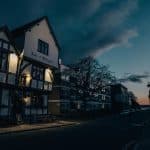If you are avid campers who love the serene tranquility that the quiet zones of the UK offer, you would undoubtedly be aware that maintaining this peace is just as important as enjoying it. But let’s acknowledge the elephant in the room – camping also involves the use of certain noisy tools and equipment, such as generators, which can create a significant amount of noise, disrupting the very tranquility you seek. So how can you best reduce this sound pollution, and thereby enhance your camping experience? Let’s delve into this concern.
Nature of Noise and Its Impact on Health
Before finding solutions, it’s vital to understand the problem at its root. Noise or unwanted sound can have severe implications on human health, especially with prolonged exposure. Excessive noise levels can lead to psychological stress, sleep disturbances and even hearing loss.
A lire en complément : What types of plants should you be aware of to avoid during a wild camping trip in Dartmoor?
A study conducted in 2022 found that regular exposure to noise levels above 85 decibels (dB), similar to the sound of heavy traffic, for eight hours or more can cause permanent damage to your hearing. And while you might assume that camping would eliminate these threats, your generators can produce sounds up to 80 dB, making it a significant concern.
Therefore, it becomes imperative for the health of your group and the overall camping experience to control these noise levels and make your stay as quiet as possible.
Dans le meme genre : What vegan and gluten-free cooking options are available at campsite stores across the UK?
Need for Noise Reduction in Camping Equipment
Generators are handy when camping in remote areas; they provide the power necessary for many camping conveniences. Their noise, however, can be an unfortunate by-product. Even if you’re using solar generators, they aren’t entirely noiseless.
Quiet, but well-functioning generators are what you need. Solar generators are generally quieter than their fuel-powered counterparts, with the best models producing noise levels as low as 50 dB. However, their power output is often less, and they do require sunlight to recharge, which may not always be available.
Thus, when choosing a generator, you’ll need to consider both its noise output and its effectiveness for your needs.
Earplugs: The Silent Guardians
Another effective way to reduce your noise exposure is by using earplugs. Earplugs are not a direct solution to the noise problem, but they can be a convenient and cost-effective way to protect your hearing while the noise levels are being handled.
For instance, if you’re attending a concert in the open area, earplugs can help you enjoy the music without risking your hearing health. It’s similar to using earplugs with generators running; they can make the noise more bearable until you can implement a more permanent solution.
However, remember that earplugs are not a foolproof method. They can only lower sound by 15-30 dB. So, if your generator is very loud, you may still be at risk of hearing damage.
Strategizing Your Camping Spot
Camping spot selection can also play a crucial role. If you’re camping in a group, placing your tents and equipment strategically can help minimize the noise impact. For instance, placing your generator in an isolated area, away from your main camping site, can significantly reduce the noise that people hear.
Also, consider natural barriers such as hills, trees or large rocks, which can act as sound barriers. Additionally, the direction in which your generator points can make a difference. Point it away from your campsite and towards an open area where the sound can disperse.
Implementing Sound Barriers and Enclosures
Finally, consider implementing sound barriers or enclosures around your generator. These barriers can absorb or deflect the sound produced by the generator, minimizing the noise that reaches your camping area. There are commercially available generator boxes and enclosures designed for this purpose, or you could opt for a DIY approach.
It’s worth noting that reducing noise pollution is not just about ensuring a peaceful camping experience; it’s about respecting the tranquility of nature and the other campers around you. So, whether you’re planning a family camping trip or a large group outing, keep these tips in mind, and enjoy the peaceful quiet zones of the UK in the best possible way.
Understanding Soundproofing Materials and Acoustic Insulation
As we delve deeper into the strategies to reduce noise levels while camping, it’s important to have a basic understanding of soundproofing materials and acoustic insulation. Sound waves travel through the air and can be absorbed, reflected, or transmitted by materials they encounter. By incorporating sound-absorbing and insulating materials in our camping setup, we can significantly reduce noise pollution.
The effectiveness of soundproofing materials is measured in Noise Reduction Coefficient (NRC), a scale that ranges from 0 (completely reflective) to 1 (completely absorptive). Materials with a higher NRC are more effective at reducing noise.
One such material commonly used for soundproofing is mass loaded vinyl. It’s a flexible, dense material that can be used to create a barrier around your generator. It can be hung or applied to surfaces, and it helps in reducing the transmission of sound waves.
Another material, acoustic foam, can also be used to absorb sound waves and reduce echo. It’s lightweight, easy to install, and can be cut into any size or shape. For camping, you could use acoustic foam panels to create a noise-reducing enclosure around your generator.
Moreover, you could also consider sound-proofing blankets. These are thick, dense blankets designed specifically for noise reduction. Though not as effective as mass loaded vinyl or acoustic foam, they offer a portable and convenient option.
Remember, these are all additional measures and your first line of defense should always be to select a quiet generator. Nonetheless, pairing a quiet generator with these soundproofing materials can significantly improve your camping experience by lowering noise exposure levels.
Making Use of Noise Cancelling Technology
In recent years, noise cancelling technology has become increasingly popular and accessible. This technology can be a great asset when trying to reduce noise pollution while camping, particularly for personal use.
Noise cancelling headphones work by producing sound waves that counteract incoming noise. This helps in reducing the perceived noise level, allowing you to enjoy the tranquility of the environment. Do keep in mind, though, that these headphones can be costly, so it’s important to consider the buy price and your budget before investing in them.
Alternatively, there’s also the option of noise cancelling earplugs. Unlike traditional earplugs which block sound, these earplugs use active noise cancelling technology to reduce ambient noise. They are particularly effective against low-frequency sounds, such as the hum of a generator.
Moreover, research from a Google Scholar article also suggests that using noise cancelling devices can prevent noise induced hearing loss. So, not only do these devices help in reducing noise pollution, they also contribute to protecting your hearing health.
Conclusion: Embracing Quiet Camping
In conclusion, camping in quiet zones is a unique experience that allows us to reconnect with nature and escape from the hustle and bustle of daily life. However, it also comes with an added responsibility of ensuring we do not contribute to noise pollution. Utilizing quieter generators, strategic camping spot selection, the implementation of sound barriers and enclosures, and making use of earplugs and noise cancelling technology can all help minimize noise exposure.
Most importantly, we should always strive to respect the tranquility of the environment and other campers. As we have learned, noise pollution can lead to serious health issues like hearing loss, so it becomes essential not just for our enjoyment, but also for our health and well-being, to keep noise levels in check.
So, the next time you plan a camping trip, make sure to incorporate these methods for sound reduction and enjoy the minimal noise, maximum tranquility experience in the quiet zones of the UK. After all, the best way to appreciate the serenity of nature is in silence.











